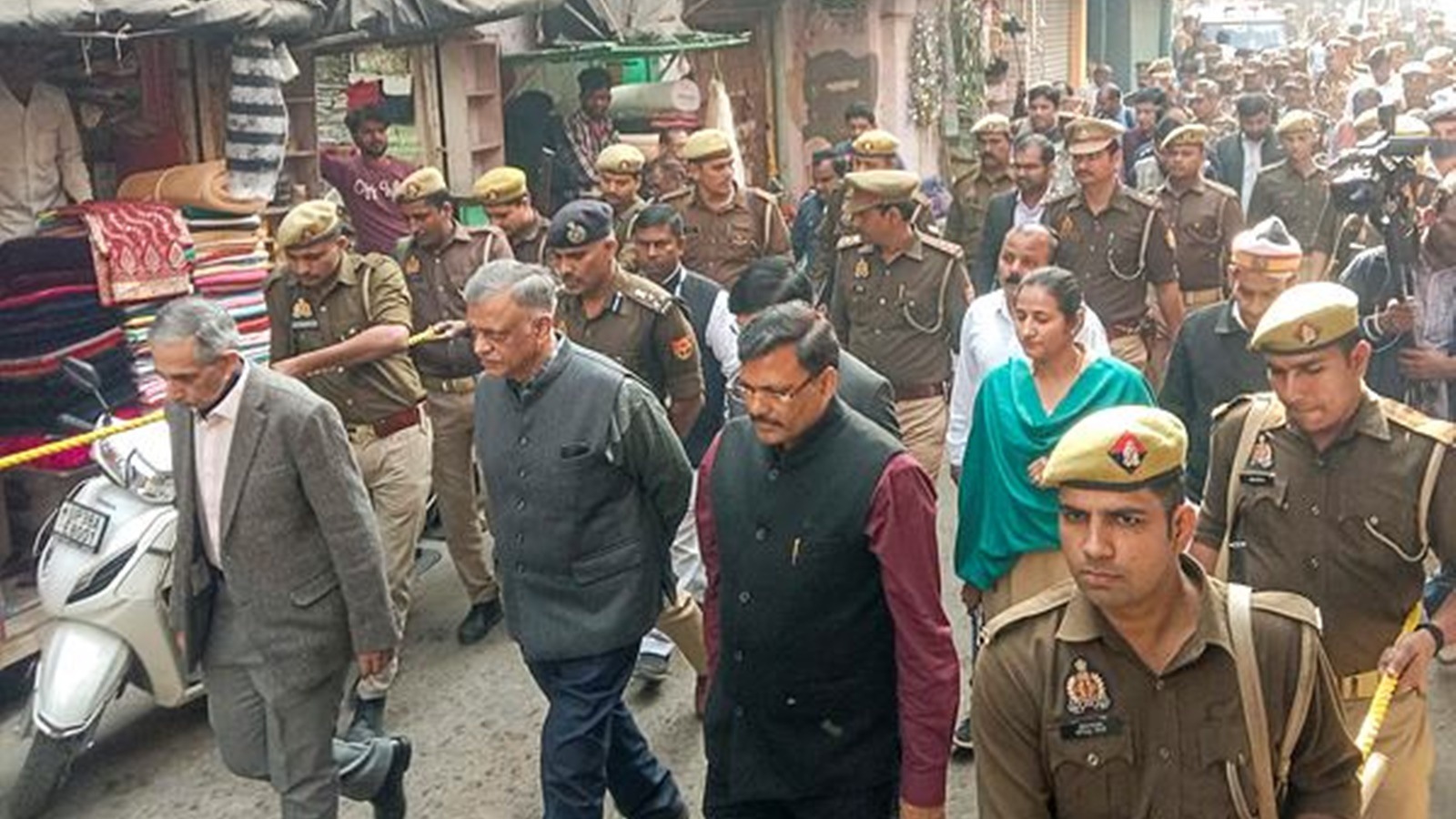 |
|
The aftermath of the violent clashes that erupted during a mosque survey in Sambhal, Uttar Pradesh, is under intense scrutiny following the arrival of a judicial inquiry commission. The incident, which resulted in four fatalities and injuries to approximately 25 individuals, including police officers, has sparked a political firestorm and raised serious questions about the role of law enforcement and the potential for incitement. The commission, appointed by the Yogi Adityanath government, comprises retired high court judge Devendra Kumar Arora, former state police chief Arvind Kumar Jain, and retired IAS officer Amit Mohan Prasad. While Prasad was unable to attend the initial visit to Sambhal, Arora and Jain commenced their investigation on Sunday, meeting with various stakeholders.
The commission's investigation focused on gathering firsthand accounts from diverse sources. Arora and Jain spent approximately 40 minutes at the Shahi Jama Masjid, engaging in discussions with police and administrative officials, local shop owners, and individuals present during the violence. Their investigation extended beyond the mosque's immediate vicinity, including a visit to the residence of Samajwadi Party (SP) MP Ziaur Rahman Barq. The police have implicated Barq, alleging that he incited the violence through inflammatory speeches. Furthermore, Sohail Iqbal, the son of a local SP legislator Iqbal Mahmood, has also been implicated in the violence, accused of participating in the stone-pelting.
The investigative process, expected to span two months, aims to unravel the sequence of events leading to the violence and assign responsibility. Arvind Kumar Jain affirmed that the investigation is underway, highlighting the two-month timeframe allocated to the probe. The Divisional Commissioner of Moradabad, Anunjaneya Kumar Singh, underscored the support provided to the commission, emphasizing the security measures implemented during their visit and the commitment to provide further assistance as needed. Superintendent of Police Krishna Kumar Bishnoi played a crucial role in briefing the commission members, guiding them to locations where stone-pelting occurred and providing context to the street outside the mosque where the most intense violence took place. The commission also held private meetings with the District Magistrate Rajender Pensiya and Bishnoi at the PWD guesthouse.
The political ramifications of the Sambhal violence are far-reaching, with the BJP seizing the opportunity to criticize its political opponents. Deputy Chief Minister Keshav Prasad Maurya took to X (formerly Twitter) to assert that the Samajwadi Party's recent electoral setbacks have fueled their alleged conspiracy to disrupt peace and incite communal tensions. Maurya's statement frames the Sambhal violence as a deliberate attempt by the SP to sow discord among communities, further escalating the political dimension of the unfolding investigation. The allegations against the SP MP and MLA's son underscore the deep-seated political rivalry and the potential for politically motivated violence in the region. The investigation will not only determine the immediate causes of the violence but also probe the underlying political motivations and the role played by prominent figures from both the ruling and opposition parties.
The inquiry's findings will have significant legal and political consequences. The potential for criminal charges against those implicated, including the SP MP and MLA's son, raises the stakes considerably. Furthermore, the investigation's outcome will likely influence public perception of law enforcement's response to the violence and the overall security situation in the region. The incident highlights the complexities of communal tensions in India and the challenges of maintaining peace and order in a politically charged environment. The judicial inquiry’s mandate extends beyond simply establishing the facts; it encompasses the responsibility of assessing the adequacy of the police response and identifying potential systemic failures that may have contributed to the escalation of violence. The next two months will be crucial in determining the full extent of the Sambhal tragedy and ensuring accountability for the loss of life and the injuries sustained.
The case also brings to the forefront the debate surrounding the contentious survey of religious sites in India. While the government maintains the surveys are for the purpose of preservation and documentation, critics argue that they are a veiled attempt to marginalize certain religious communities. The Sambhal incident serves as a stark reminder of the potential for such actions to spark conflict, underscoring the delicate balance between religious freedom and maintaining public order. The long-term consequences of this incident remain to be seen, but it is clear that the judicial inquiry will play a critical role in shaping the narrative and determining the course of justice. The detailed investigation, which includes interviews with numerous witnesses and an examination of physical evidence, will be key in reconstructing the events leading to the violence and determining the responsibility of all parties involved. The government's commitment to ensuring a transparent and impartial inquiry will be vital in restoring public trust and preventing future incidents of a similar nature.
Source: Judicial panel members reach Sambhal to inquire into violence over mosque survey
